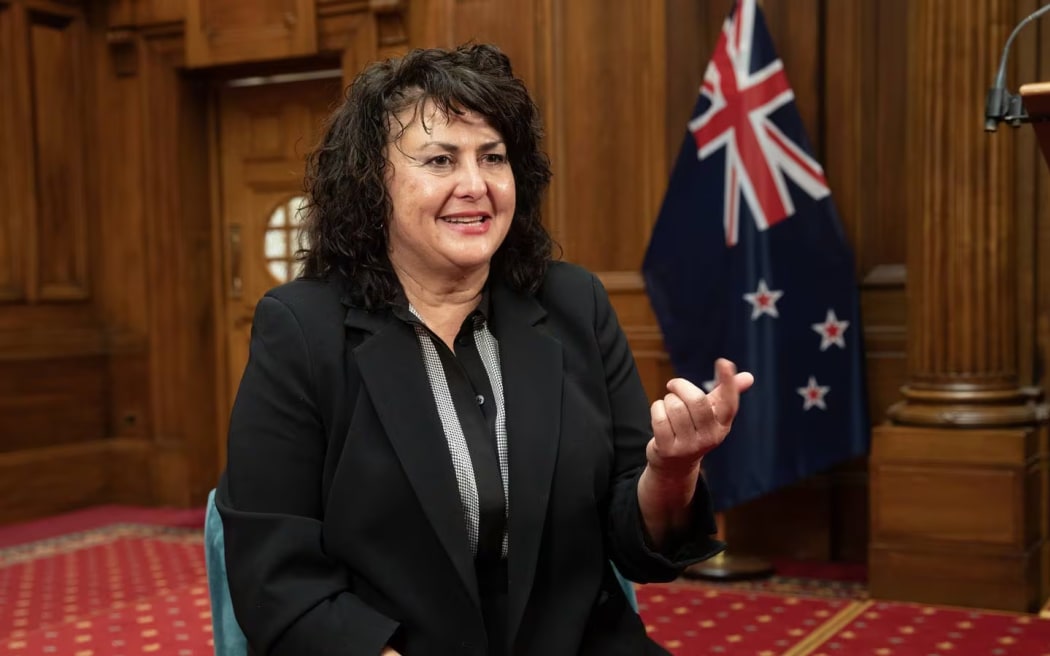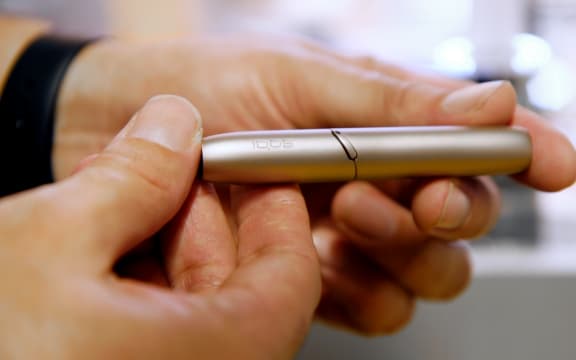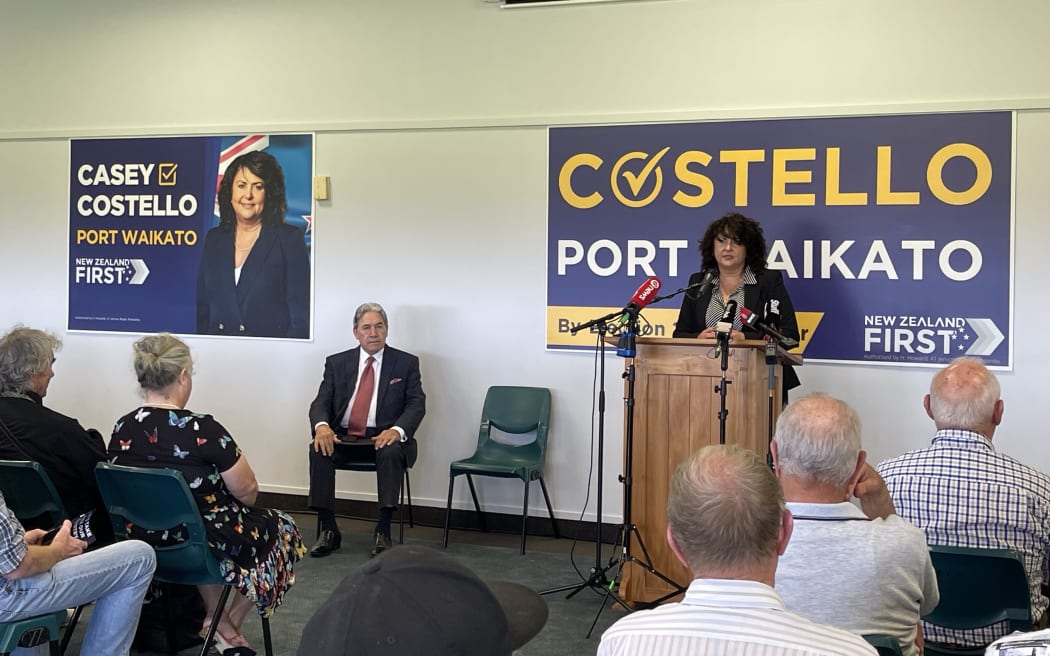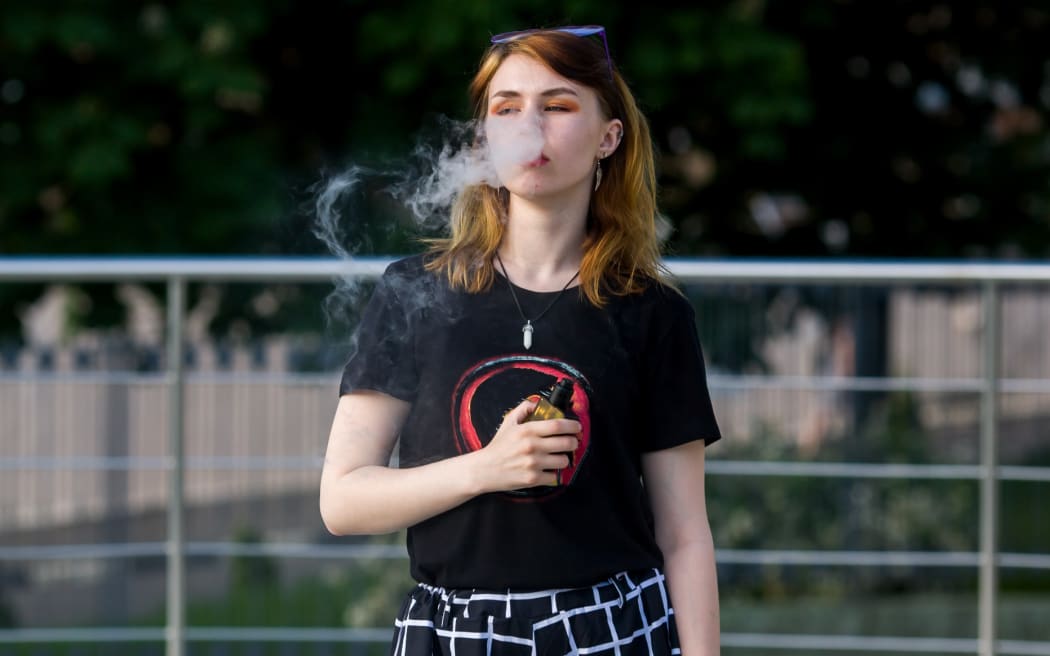
Associate Health Minister Casey Costello Photo: Mark Mitchell / NZ Herald
NZ First's Associate Health Minister Casey Costello has a lot of ideas about the regulation of tobacco - many them will be controversial.
Cigarettes would be insulated from the full impact of inflation under a proposal from New Zealand First Associate Health Minister Casey Costello.
Currently, tobacco excise is increased each year in line with the Consumer Price Index (CPI).
RNZ has learned Costello is proposing a three year freeze on CPI-related excise increases for smoked tobacco.
But when RNZ put that to her in an interview Costello said she hadn't looked at it.
"I've had no discussions on that at all. Like, that's - it's not even something I specifically sought advice on," she said. "I haven't looked at a freeze on the excise at all."
But RNZ has seen a Ministry of Health document, sent to Costello, which says the minister is proposing to freeze the excise tax.
"The additional information you provided to us proposed also to freeze the excise on smoked tobacco for three years," the document says.
While Costello told RNZ she had not asked for advice on the issue, the Ministry of Health document appears to contradict that.
The document sent to Costello asks: "whether you would like advice in January 2024 to include implications of a three year freeze on CPI-related excise increases for smoked tobacco." The 'yes' option is circled in the document, which was signed by Costello on 20 December, 2023.
While Costello would not confirm to RNZ that she was proposing to freeze excise increases, she did say she was open to the idea.
"There is a high cost being paid by the people who can least afford it, because they have an addiction to nicotine and we're continuing to penalise that demographic of society," she said. "I have some sympathy for a freeze because we are now dealing with a much smaller group of people that are carrying an incredible financial burden."
But Janet Hoek, a Professor of Public Health at the University of Otago, said that would put tobacco in a privileged position in relation to other consumer goods.
"What a freeze like that would do is effectively insulate tobacco from the effects of inflation."

Professor Janet Hoek Photo: Supplied
Hoek said recent CPI-related excise increases saw a typical packet of cigarettes increase by about $2 - which may be enough to prompt smokers to quit.
"It seems absolutely astonishing that healthy products, like fruit and vegetables, would continue to have increases in prices as inflation rose but tobacco would be protected and I just can't think of a single other country that has privileged tobacco in that way," Hoek said.
"I absolutely agree that we ought to make smoking less financially burdensome for people and the very best way to do that is to help those people quit."
A Cabinet paper in 2020 said raising excise tax was a big factor in people stopping smoking.
The paper quoted a report from Ernst & Young saying that "the weight of evidence shows that increasing the price of tobacco continues to be the single most effective tool for reducing tobacco use". The report linked the big fall in smoking rates with the increases in excise tax since 2011.
Tax break for 'heated tobacco products'
RNZ has also learned that Costello is proposing to remove the excise tax from smokeless tobacco products, where the tobacco is heated to a vapour rather than burned. That could deliver a win for companies producing what are known as Heated Tobacco Products, or HTPs.
Philip Morris has argued for years that its IQOS product - where sticks of tobacco are inserted into an e-cigarette and heated, producing a vapour rather than smoke - should get a tax break.

The IQOS product marketed by Philip Morris Photo: RNZ/ Luke McPake
Currently the tobacco sticks are taxed for excise under a category called 'other tobacco' which has a similar excise rate to ordinary smoked tobacco.
In 2018, Philip Morris told the government's Tax Working Group that the IQOS "yields on average less than 10% of the levels of harmful constituents found in cigarette smoke" and the tax system should reward the fact it was a safer product.
Philip Morris urged the government to "establish a tax rate for heated tobacco products significantly below the tax rate" for smoked tobacco.
Hoek said removing the excise tax from heated tobacco products would be welcomed by the tobacco industry.
"I think this would just be an enormous win for tobacco companies like Philip Morris, which has the IQOS, and for all tobacco companies that are developing heated tobacco products," Hoek said.
She supported lower taxes for safer alternatives but did not believe there was hard evidence that heated tobacco products helped people quit smoking and reduced the harm for those who did switch.
"We need solid evidence that helps us to answer both of those questions before we go about creating what would effectively be financial incentives for these products."
The coalition agreement between National and New Zealand First suggests that tax will be removed from heated tobacco products by "taxing smoked products only".
Costello said that was still the intention but she wanted advice before implementing that.
"It is definitely one of the things that we have committed to in the coalition agreement but we're not going to do anything without getting clear advice on it."

Casey Costello, a newcomer to NZ First, was ranked third on its list and stood as the party's candidate in the Port Waikato by-election last year Photo: Katie Scotcher / RNZ
Minister says she has no links to tobacco industry
Two men who held senior positions with the NZ First party have gone on to work for Philip Morris in New Zealand.
David Broome, chief of staff for NZ First between 2014 and 2017, confirmed to RNZ he was currently the external relations manager at Philip Morris.
Apirana Dawson, who was director of operations and research in the office of Winston Peters between 2013 and 2017 and led the election campaigns for the party in 2014 and 2017, also went on to work with Philip Morris. He did not respond to messages and calls from RNZ but his LinkedIn profile lists him as having held the position of director of external affairs and communications at Philip Morris since January 2021.
RNZ asked Costello whether, as a NZ First minister, she needed to be careful about the perception those links could create.
"Yeah, and that's, I suppose, why this was given to me as a portfolio responsibility because I have no relationships, I've not come into this with any history," she said. "I don't have any association to the industry at all."
Asked whether she had spoken to Broome or Dawson about the smoking and vaping policies she said: "No, nothing at all" - and nor had she spoken to anyone else in the tobacco industry about the policies.

Photo: 123RF
Harsher penalties for selling vapes to minors
Costello also wants to crackdown on youth vaping, including introducing harsher penalties for selling to minors.
Currently, the fines for selling to a minor are $10,000 for a body corporate and $5000 for any other case. But no prosecutions of vape retailers have been taken for selling to minors so the fine levels have not been tested.
RNZ understands Costello is proposing a $30,000 fine for selling vapes to minors.
Costello told RNZ she wanted "much harsher penalties" but "hadn't looked at specific penalties".
When RNZ asked Costello whether she was looking at a $30,000 fine, she said: "No. I haven't. And again that may be in some reports I received but I haven't received any advice yet in terms of what those penalties should look like and what would be reasonable."
But in the documents RNZ has seen, health officials indicate the idea for a $30,000 fine came from Costello. "The additional notes you provided us suggested including a fine of up to $30,000," the Ministry of Health document, sent to Costello, says.
The government reform of smoking and vaping laws also includes scrapping Labour's plan to create a smoke free generation by banning the sale of tobacco to anyone born on or after January 1, 2009.
"Prohibition hasn't worked. Like, it doesn't reduce demand," Costello said. "We're absolutely committed to the smoke free targets. We just disagreed with the approach that was being taken to achieve it."
Costello wants to give smokers a greater range of safer alternatives to smoking and is considering introducing oral nicotine products, including snus and chewing tobacco.
Currently all oral nicotine products are illegal in New Zealand.
Hoek questioned the wisdom of introducing new nicotine products without strong evidence they would reduce harm and warned that some oral nicotine products were designed to attract young people.
"I taught marketing for 20 years. I can tell you these are products that are designed to appeal to young people," Hoek said. "They've got really cool packaging and logos. They use the colours and designs that are going to attract the attention and interest of young people."


